What You Need To Know About the Foods That Undermine Your Immune System: Unveiling The Top 8 Dangerous Culprits for Weakened Immune Defenses
Unveiling the Top 8 Culprits for Weakened Immune Defenses
Overview

Understanding the Immune System
The immune defense system is an intricate and complex network of cells, tissues, and organs that work together to protect the body from harmful invaders. It serves as a defense mechanism by identifying and neutralizing various pathogens, including bacteria, viruses, fungi, and parasites. The immune system is comprised of specialized cells, such as white blood cells, antibodies, and lymphocytes, which coordinate a highly intricate response to keep us healthy.
There are a few more key aspects about the immune defense system that are worth knowing:
- Innate and Adaptive Immunity: The immune system can be divided into two main branches: innate immunity and adaptive immunity. Innate immunity is the first line of defense and provides immediate, non-specific protection against pathogens. It includes physical barriers (e.g., skin), chemical defenses, and various immune cells. Adaptive immunity, on the other hand, is a more specialized response that develops over time. It involves the activation of specific immune cells, such as T and B cells, and leads to the production of antibodies tailored to fight specific pathogens.
- Memory Response: One of the remarkable features of the immune system is its ability to generate immunological memory. When the
body encounters a particular pathogen for the first time, it mounts an immune response and produces memory cells. These memory cells “remember” the pathogen, allowing for a faster and more effective immune response upon subsequent encounters. This is the basis for vaccination, where a weakened or harmless form of a pathogen is introduced to stimulate a memory response without causing illness.
- Gut-Immune Connection: The gut and immune system have a close relationship. The gut-associated lymphoid tissue (GALT) is a significant component of the immune defense system and plays a crucial role in maintaining immune balance. The gut microbiota, consisting of trillions of bacteria and other microorganisms residing in the digestive tract, interacts with the immune system and helps shape its development and function. A healthy gut microbiome is important for proper immune response and overall well-being.
- Impact of Lifestyle Factors: Various lifestyle factors can influence immune function. Adequate sleep, regular exercise, stress management, and a balanced diet rich in fruits, vegetables, whole grains, and lean proteins contribute to a healthy immune defense system. Conversely, factors such as chronic stress, lack of sleep, poor nutrition, and sedentary lifestyle can weaken the immune defense system and make individuals more susceptible to infections.
- Immunodeficiency and Immunotherapy: Immunodeficiency refers to conditions in which the immune defense system is impaired or dysfunctional, leading to increased susceptibility to infections and diseases. Some immunodeficiencies are inherited, while others can be acquired, such as through certain medical conditions or as a result of medical treatments. Immunotherapy, on the other hand, is a rapidly advancing field that utilizes the power of the immune system to treat various diseases, including cancer. It includes approaches such as monoclonal antibodies, immune checkpoint inhibitors, and adoptive cell therapies.
Understanding the intricacies of the immune system helps us appreciate its remarkable capabilities and the importance of maintaining its health. By adopting a holistic approach to lifestyle and healthcare, we can support our immune defense system and enhance our overall well-being.
The Effects of a Low Immune System
A weakened immune defense system can make us more susceptible to infections, illnesses, and overall poor health. Several factors, including poor nutrition, chronic stress, lack of sleep, and certain medical conditions, can compromise the immune defense system. Here are the specific consequences of a weakened immune defense system:
- Increased susceptibility to infections: A compromised immune system struggles to fend off infections, leading to more frequent bouts of common colds, respiratory infections, and other illnesses. It becomes harder for the body to mount an effective defense against pathogens.
- Delayed wound healing: The immune defense system plays a crucial role in the healing process. When compromised, wounds may take longer to heal, leaving us vulnerable to infections and complications. The body’s ability to repair damaged tissues is compromised, resulting in a slower healing process.
- Chronic fatigue: A weakened immune defense system can contribute to persistent fatigue, making it harder to fight off infections and affecting overall energy levels. The immune defense system requires energy to function optimally, and when it is compromised, it can result in prolonged feelings of exhaustion.
- Autoimmune disorders: In some cases, a weakened immune defense system can become overactive and mistakenly attack healthy cells, resulting in autoimmune disorders like rheumatoid arthritis or lupus. The immune system loses its ability to distinguish between self and non-self, leading to an attack on the body’s own tissues.
- Allergies and Sensitivities: A compromised immune defense system can result in an overactive immune response, leading to the development of allergies and sensitivities. Common allergies include hay fever, food allergies, and allergic asthma.
The Effects of a High Immune System
While a strong immune defense system is essential for protecting our health, an overactive immune response can also have adverse effects. Conditions such as allergies, asthma, and autoimmune diseases can arise due to an overactive immune defense system. The immune system mistakenly identifies harmless substances as threats, leading to unnecessary inflammatory reactions that can be harmful to our own body. Below are some of the effects of an overactive immune defense system.
- Allergic Reactions: An overactive immune defense system can trigger exaggerated responses to harmless substances, resulting in allergic reactions. Common symptoms include itching, hives, nasal congestion, wheezing, and anaphylaxis in severe cases.
- Autoimmune Disorders: An overactive immune system can mistakenly attack healthy cells and tissues in the body, leading to autoimmune disorders. Examples include rheumatoid arthritis, lupus, multiple sclerosis, and type 1 diabetes. These conditions can cause chronic inflammation and damage to organs and tissues.
- Chronic Inflammatory Conditions: Excessive immune activation can lead to chronic inflammation throughout the body. Chronic inflammation is associated with various health problems, including cardiovascular diseases, metabolic disorders, and neurodegenerative diseases.
- Tissue and Organ Damage: In cases of chronic inflammation or autoimmune disorders, the immune defense system’s attack on healthy tissues can result in damage to organs and tissues. This damage can impair their normal function and contribute to long-term health issues.
It’s important to note that the immune defense system is a highly complex and dynamic system, and its activity levels can fluctuate. Striking a balance in immune function is essential for maintaining optimal health.
The Top Foods That Weaken Your Immune Defense System
There are several foods that can potentially suppress the immune defense system. It’s important to note that the effect of these foods on immune function may vary among individuals, and moderation is key. Here are a few examples:
- Excessive Sugar Intake: Consuming high amounts of refined sugar can suppress the immune system and impair the ability of white blood cells to fight off pathogens. Sugar can interfere with the functioning of immune cells, reducing their efficiency and making us more susceptible to infections.
- Processed and Fried Foods: These foods are often high in unhealthy fats, additives, and preservatives, which can contribute to chronic inflammation and weaken the immune defense system. Trans fats, commonly found in processed and fried foods, can lead to an overactive immune response and increase the risk of inflammatory diseases.
- Sodas and Sugary Beverages: The high sugar content in these drinks can negatively impact immune function and increase the risk of chronic diseases. Excessive consumption of sugary beverages can lead to weight gain, inflammation, and impaired immune response, making us more susceptible to infections.
- Alcohol: Excessive alcohol consumption can disrupt the balance of healthy gut bacteria, impair immune cell function, and lead to a weakened immune defense system. Alcohol can damage the cells lining the intestines, compromising the absorption of nutrients vital for immune health.
- High Sodium Foods: A diet high in sodium can contribute to elevated blood pressure, increasing the risk of heart disease and impairing immune function. Excess sodium intake can lead to inflammation and oxidative stress, negatively impacting the immune system’s ability to function optimally.
- Processed and Fried Foods: Processed and fried foods often contain unhealthy fats, additives, and preservatives that can contribute to chronic inflammation in the body. Chronic inflammation can disrupt the normal functioning of the immune defense system and compromise its ability to defend against infections.
- Seed Oils (Vegetable oils) and Trans Fats: Foods high in seed oils and trans fats, such as vegetable oils, highly processed dairy products, and commercially baked goods, have been associated with increased inflammation in the body. Chronic inflammation can weaken the immune defense system and make it less responsive to infections.
- Excessive Caffeine: While moderate caffeine consumption is generally considered safe, excessive intake may lead to disrupted sleep patterns and increased stress levels. Prolonged sleep deprivation and chronic stress can negatively impact immune function over time.
It’s worth noting that individual responses to these foods can vary, and some people may be more sensitive to their effects on immune health. Maintaining a balanced diet that includes a variety of whole foods, along with other healthy lifestyle practices, is crucial for supporting optimal immune function.
Foods That Boost our Immune Defense System
Here are seven natural foods that can help boost your immune system:
- Citrus Fruits: Citrus fruits such as oranges, grapefruits, lemons, and limes are rich in vitamin C. Vitamin C is known to enhance the production of white blood cells, which are key to fighting off infections. These fruits are also packed with antioxidants that help protect the immune cells from damage.
- Garlic: Garlic has long been recognized for its immune-boosting properties. It contains sulfur compounds that have been shown to
stimulate the immune defense system and increase the activity of white blood cells. Garlic also has antibacterial and antiviral properties, making it an excellent addition to your diet for immune support. Garlic is also a powerful detoxifier of the body.
- Ginger: Ginger has powerful anti-inflammatory and antioxidant properties that can support a healthy immune defense system. It helps reduce inflammation in the body, improves circulation, and aids digestion. Ginger can be consumed fresh, in teas, or added to various dishes for its immune-boosting benefits.
- Berries: Berries such as strawberries, blueberries, and raspberries are packed with antioxidants, vitamins, and fiber. These vibrant fruits contain high levels of vitamin C, which helps strengthen the immune system and protect against cellular damage caused by free radicals.
- Yogurt: Probiotic-rich foods like yogurt contain beneficial bacteria that promote a healthy gut. A strong immune defense system relies on a healthy gut microbiome, as a significant portion of immune cells resides in the gut. Choose plain yogurt with live cultures to reap the immune-boosting benefits without added sugars. Opt for yogurts made from nut milks or non-GMO Organic grass-fed cows.
- Spinach: Leafy green vegetables like spinach are packed with numerous nutrients that support immune health. Spinach is rich in vitamins A, C, and E, as well as antioxidants and fiber. These nutrients help strengthen the immune defense system and protect the body against harmful pathogens.
- Almonds: Almonds are a nutrient-dense nut that provides essential vitamins and minerals. They are rich in vitamin E, which acts as a powerful antioxidant that supports immune function. Consuming a handful of almonds as a snack or incorporating them into meals can provide a healthy dose of immune-boosting nutrients.
Including these seven natural foods in your diet can help strengthen your immune defense system and support overall health. Remember to prioritize a balanced and varied diet that includes a range of nutrient-rich foods to optimize your immune response.
Final Thoughts
Maintaining a healthy immune defense system is vital for overall well-being. By avoiding foods that undermine immune function and adopting a balanced diet rich in whole foods, fruits, vegetables, lean proteins, and healthy fats, we can support our immune system’s ability to defend against infections and diseases. Coupled with regular exercise, adequate sleep, and stress management, we can strive to achieve optimal immune health and enjoy a vibrant life.
For natural and healing remedies, products, and supplements that can help you live your most optimal healthy life, visit our store here!
To Your Health!
References
- Harvard Health Publishing. (2020). How to boost your immune system. Harvard Health.
- (2022). Immune System and Disorders.
- Carr, A. C., & Maggini, S. (2017). Vitamin C and immune function. Nutrients, 9(11), 1211.
- Moser, M. A., & Chun, O. K. (2016). Vitamin C and heart health: A review based on findings from epidemiologic studies. International Journal of Molecular Sciences, 17(8), 1328.
- Mayo Clinic. (2021). Alcohol: Effects on health.
- Naclerio, R. M., & Bachert, C. (2019). Pathophysiology of nasal congestion. International Journal of General Medicine, 12, 47-57.
- Pae, M., et al. (2012). Anti-inflammatory effects of the ether extract from ginger (Zingiber officinale) in vitro and in vivo. Food Science & Nutrition, 1(6), 410-418.
- Gill, H. S., & Rutherfurd, K. J. (2001). Probiotic supplementation to enhance natural immunity in the elderly: Effects of a newly characterized immunostimulatory strain of Lactobacillus rhamnosus HN001 (DR20) on leucocyte phagocytosis. Nutritional Immunology, 4(3), 237-246.
- Calder, P. C., et al. (2019). Nutritional modulation of the gut microbiota and immune system in preterm neonates susceptible to necrotizing enterocolitis. Journal of Parenteral and Enteral Nutrition, 43(S2), S26-S31.
- Magrone, T., et al. (2010). Immune profile of obese people and in vitro effects of red grape polyphenols on peripheral blood mononuclear cells. Oxidative Medicine and Cellular Longevity, 3(4), 255-262.
- Gropper, S. S., et al. (2009). Advanced Nutrition and Human Metabolism (5th ed.). Cengage Learning.
- Parolini, S., et al. (2013). Impact of dietary lipids on colonic function and microbiota: An experimental approach involving orlistat-induced fat malabsorption in human volunteers. Gut, 62(5), 594-603.
- Sandhu, M., et al. (2018). Alcohol and the Immune System. Alcohol Research: Current Reviews, 39(2), 83-94.
- Hummelen, R., et al. (2010). Effect of 25 weeks probiotic supplementation on immune function of HIV patients. Gut Microbes, 1(6), 1-7.
- Steptoe, A., et al. (2007). The effects of acute psychological stress on circulating inflammatory factors in humans: A review and meta-analysis. Brain, Behavior, and Immunity, 21(7), 901-912.
- Chatterjee, S., et al. (2014). Caffeine augments neutrophil migration through Adenosine A2A receptors. Atherosclerosis, 233(1), 159-165.
- Abbas, A. K., et al. (2020). Cellular and Molecular Immunology (10th ed.). Elsevier.
- Belkaid, Y., & Hand, T. W. (2014). Role of the Microbiota in Immunity and Inflammation. Cell, 157(1), 121-141.
- Janeway, C. A., et al. (2005). Immunobiology: The Immune System in Health and Disease (6th ed.). Garland Science.
- Cohen, S., et al. (2012). Psychological Stress and Disease. JAMA, 298(14), 1685-1687.
- Sharma, P., & Allison, J. P. (2015). The future of immune checkpoint therapy. Science, 348(6230), 56-61.
- Casanova, J. L. (2015). Human genetic basis of interindividual variability in the course of infection. Proceedings of the National Academy of Sciences, 112(51), E7118-E7127.
- (2022). Immune System and Disorders.
- Honda, K., & Littman, D. R. (2016). The microbiota in adaptive immune homeostasis and disease. Nature, 535(7610), 75-84.
- Lerner, A., & Matthias, T. (2015). Changes in intestinal tight junction permeability associated with industrial food additives explain the rising incidence of autoimmune disease. Autoimmunity Reviews, 14(6), 479-489.
- Netea, M. G., et al. (2017). Trained immunity: A program of innate immune memory in health and disease. Science, 352(6284), aaf1098.
- Lawrence, T., & Fong, C. (2010). The resolution of inflammation: Anti-inflammatory roles for NF-kappaB. International Journal of Biochemistry and Cell Biology, 42(4), 519-523.

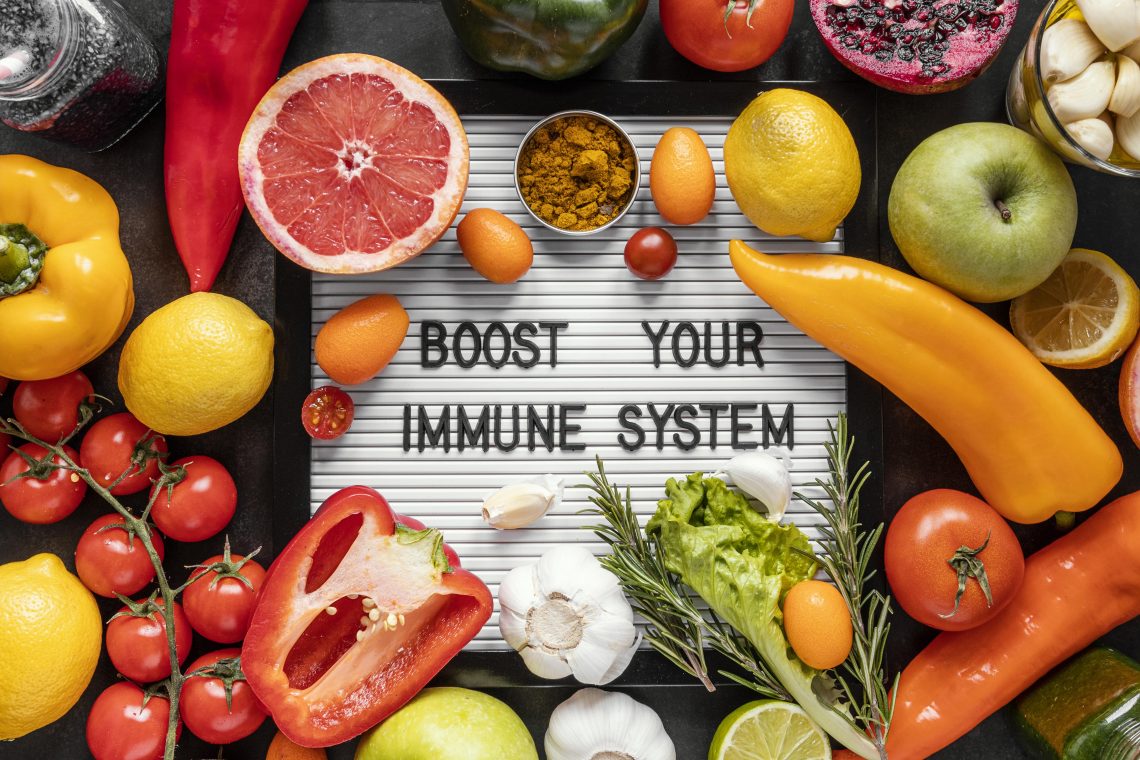



 stimulate the immune defense system and increase the activity of white blood cells. Garlic also has antibacterial and antiviral properties, making it an excellent addition to your diet for immune support. Garlic is also a powerful detoxifier of the body.
stimulate the immune defense system and increase the activity of white blood cells. Garlic also has antibacterial and antiviral properties, making it an excellent addition to your diet for immune support. Garlic is also a powerful detoxifier of the body.
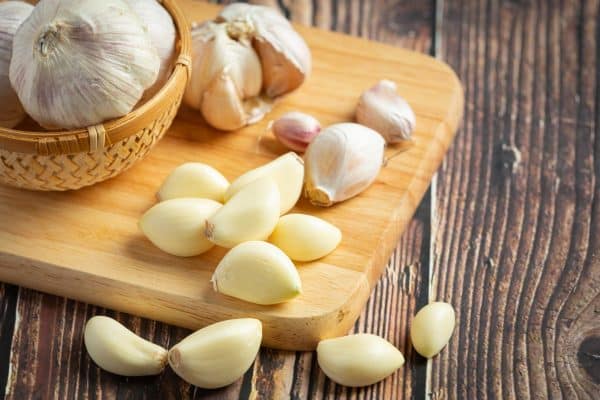
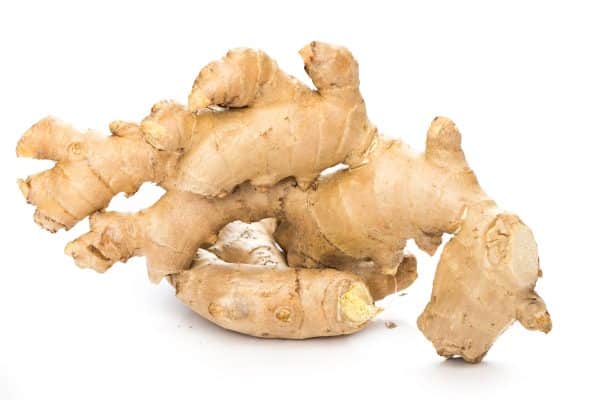
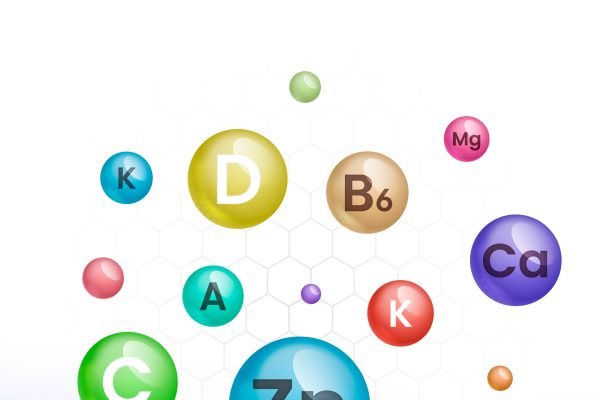




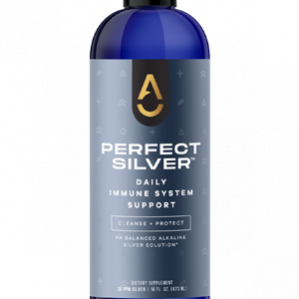
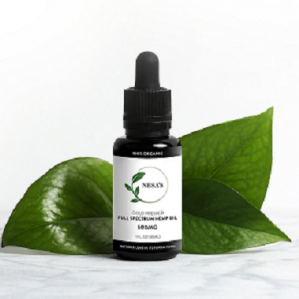
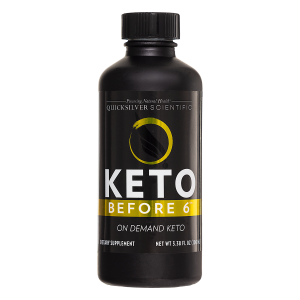
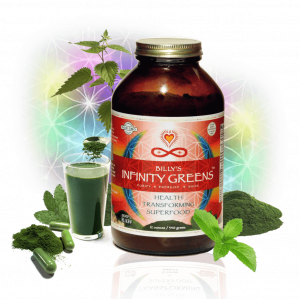
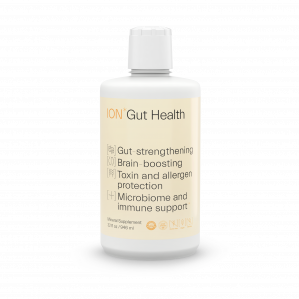











3 Comments
[…] contains antioxidants that help neutralize free radicals, protecting cells from oxidative […]
[…] This antioxidant has demonstrated anti-inflammatory properties, potentially helping with conditions related to chronic inflammation, such as […]
[…] research suggests that dandelion greens may possess anti-inflammatory properties. Chronic inflammation has been linked to various health conditions, including arthritis, heart […]